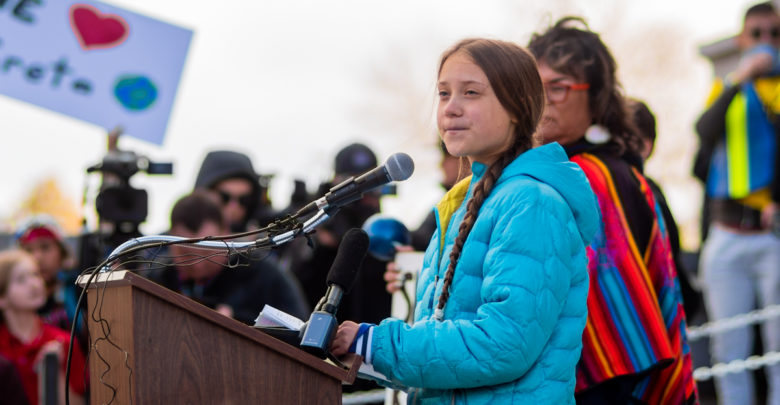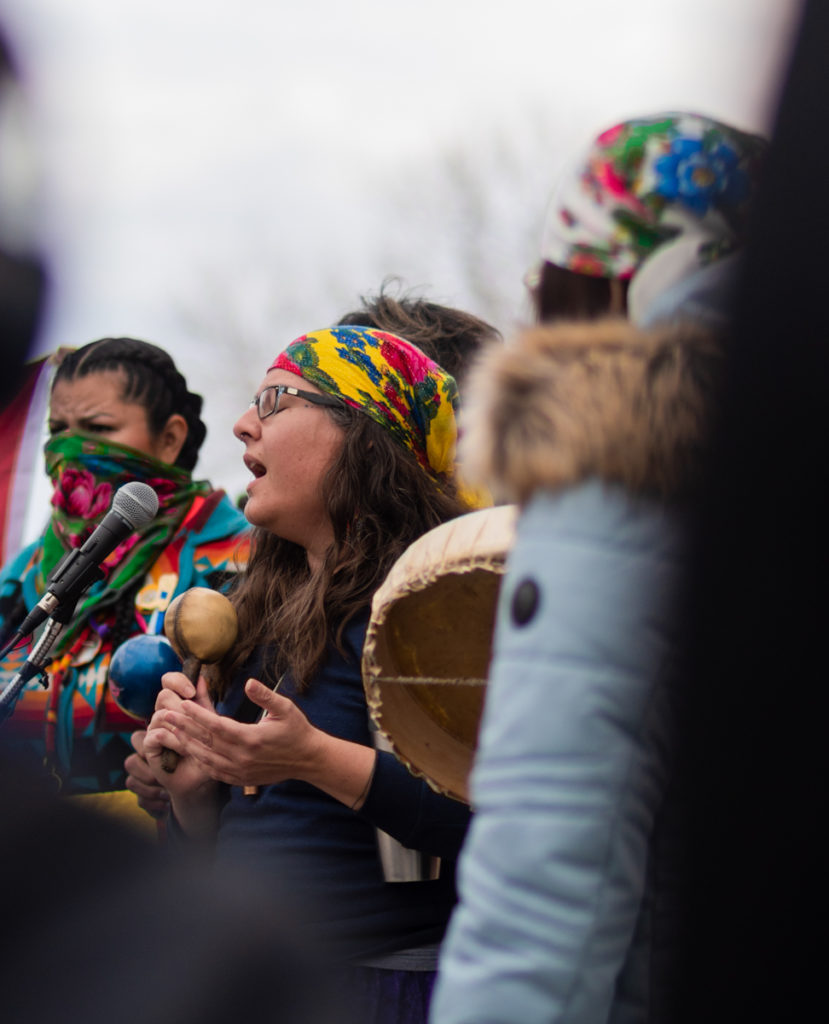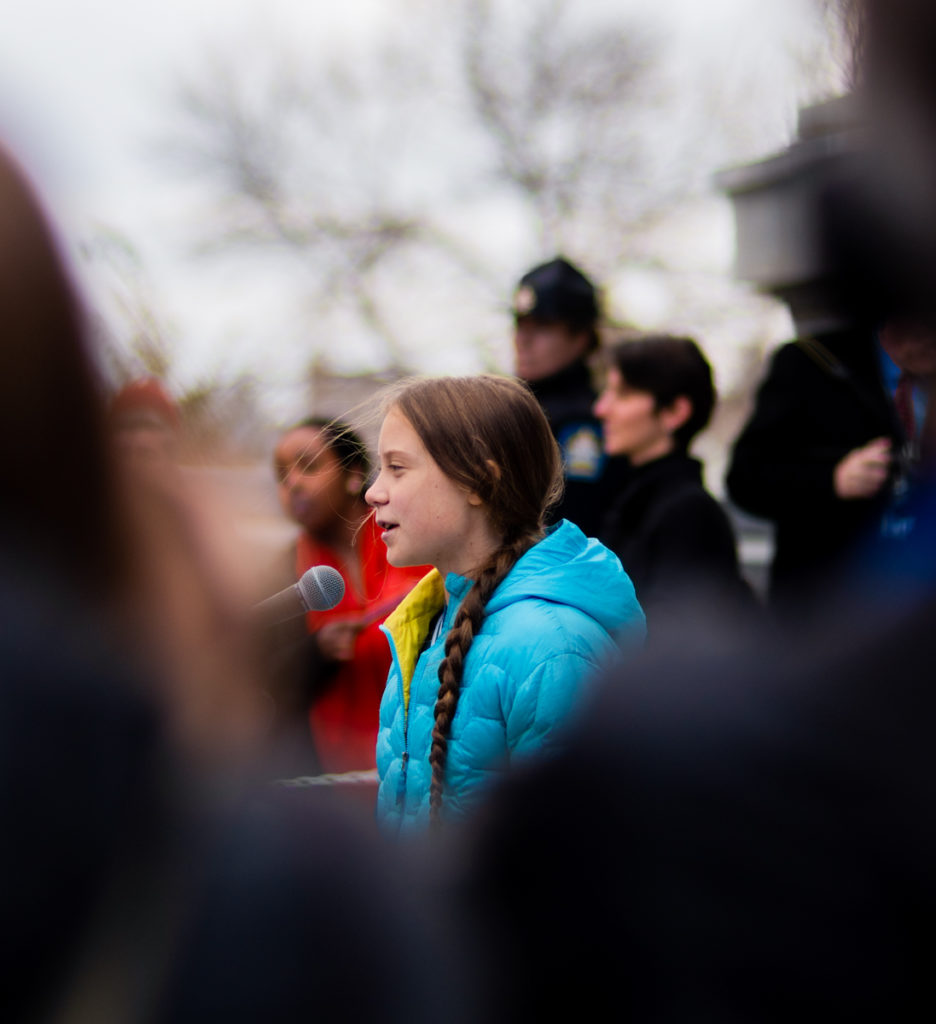Greta Thunberg marches in Edmonton climate strike
Environmental activist Greta Thunberg stops in Edmonton during tour of North America
 Helen Zhang
Helen ZhangSwedish environmental activist Greta Thunberg joined approximately 10,000 Albertans protesting at the Legislature to demand action on climate change.
Thunberg joined Albertans for a protest march starting from Beaver Hill, progressing down Jasper Avenue, and ultimately ending at the Legislature where she and other local climate activists gave speeches. The march was organized by local grassroots groups Climate Justice Edmonton, Indigenous Climate Action, Beaver Hill Warriors, and Edmonton Youth for Climate. This marks one of many stops Thunberg will be making as she tours North America.
Indigenous communities and local climate activists begin the rally
The rally began with a Treaty 6 welcome from Headwoman of Saddle Lake Cree Nation Pamela Quinn, followed by singing by Chubby Cree, an Indigenous hand drum group.
“As Aboriginal people, it is our responsibility to look after and take care of the land,” Quinn said. “Take care of one another, my relatives. Remember to love one another, love yourself, and love Mother Earth.”
Batul Gulamhusein, an organizer with Climate Justice Edmonton, started her speech acknowledging that though it was exciting to have Thunberg join the strike, there are numerous local and Indigenous climate activists that have been fighting for climate justice in Alberta for years.
In her speech she tied the already tangible effects of climate change to her personal connection with climate justice.
“While we have a government that continues to deny that the climate crisis is, in fact, a crisis, communities are already seeing the devastating impacts of rising sea levels,wildfire season in the West and a flood season in the East, erosion of traditional territories, and the destructions of islands like the ones my mom grew up on,” Gulamhusein said.
“My mom grew up on an island called Pemba in Eastern Africa. As a result of rising sea levels, that island may be underwater. Generations of my family’s history will be erased. I will never be able to return home to the lands my family comes from. This is what the climate crisis is stealing from us.”
“In this crisis, we will not be bystanders,” Thunberg said
During her address at the Legislature, Thunberg first recognized the youth and Indigenous communities involved in the strike, followed by a Treaty 6 land acknowledgement.
“It’s incredible to see so many young people and Indigenous leaders gathered here today,” Thunberg said. “You are the hope.”
Dispelling beliefs about why youth are mobilizing around climate change, Thunberg emphasized that the movement is about taking active measures to secure their futures.
“We are not doing this because we want to, we aren’t doing this because it’s fun, we aren’t doing it because we have a special interest in the climate or because we want to become politicians when we grow up,” she said. “We are doing this because our future is at stake.”
“In this crisis, we will not be bystanders. We want the people in power to unite behind the science.”
Thunberg mentioned the Intergovernmental Panel on Climate Change SR 15 report released in 2018 which said that for a 67 per cent chance of keeping the global temperature rise to below 1.5 degrees Celsius, there is only a budget of 420 gigatons of carbon dioxide According to Thunberg, with current emissions, the carbon dioxide budget will be gone in less than eight and a half years
“These figures are global and therefore do not mention the aspect of equity, clearly stated in the Paris agreement, which is essential to making it work on the global scale,” Thunberg said. “Richer countries such as Sweden or Canada need to get down to zero emissions much faster so that the people in poorer parts of the world can heighten their standard of living.”
Thunberg also touched on how the climate crisis can be a polarizing topic in politics, but emphasized that this is an issue that shouldn’t have sides.
“We cannot allow for this crisis to continue to be a partisan political question,” Thunberg said. “The climate and ecological crisis are far beyond party politics and the main enemy right now should not be any political opponents because our main enemy right now is physics.”
In a nod to how the climate strike is spearheaded by youth activists, Thunberg addressed adults to follow suit and become better allies to the movement.
“If you think we should be in school instead, then we suggest you take our place in the streets,” Thunberg said. “Or better yet, join us so we can speed up the process.”





